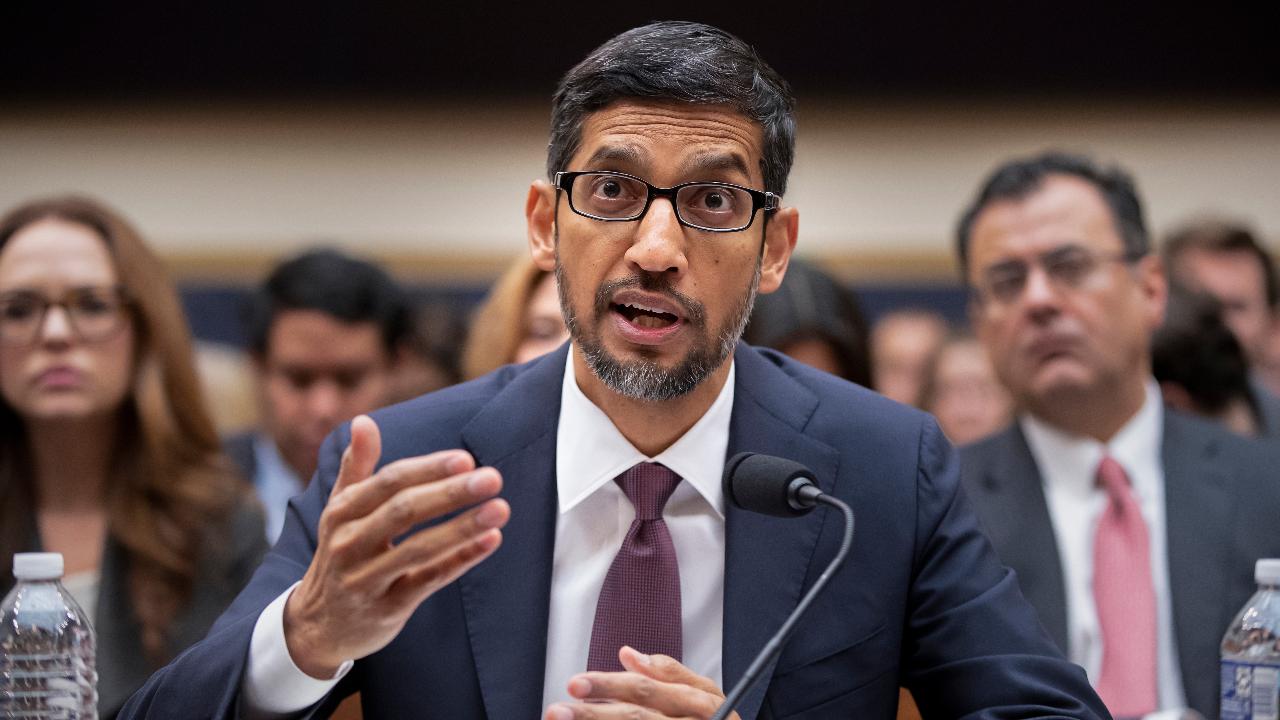Trump vs. Tech: Amazon, Twitter, Google faced presidential criticism in 2018
President Trump battered some of the tech industry’s biggest names in 2018, ripping top companies such as Google and Amazon of various perceived infractions and mistakes.
The president has repeatedly accused companies such as Google, Twitter and Facebook of allowing, and even engaging, in political bias on their platforms. Trump’s comments added another level of scrutiny to top tech firms, who were already contending with unprecedented congressional and public pressure amid concerns about data privacy, foreign meddling and “fake news” on their platforms.
“Google and Twitter and Facebook, they’re really treading on very, very troubled territory and they have to be careful. It’s not fair to large portions of the population,” Trump told reporters in the Oval Office last August, noting that his administration had received “literally thousands and thousands of complaints” about the companies’ practices.
| Ticker | Security | Last | Change | Change % |
|---|---|---|---|---|
| GOOGL | ALPHABET INC. | 322.86 | -8.39 | -2.53% |
| TWTR | NO DATA AVAILABLE | - | - | - |
| AMZN | AMAZON.COM INC. | 210.32 | -12.37 | -5.55% |
| FB | PROSHARES TRUST S&P 500 DYNAMIC BUFFER ETF | 42.42 | +0.35 | +0.84% |
As the tech industry’s difficult 2018 winds down, FOX Business breaks down Trump’s disputes with several of the top U.S. firms below.
Trump vs. Amazon
While Trump and Amazon CEO Jeff Bezos have traded barbs since the 2016 presidential election cycle, the president’s strongest criticisms have been tied to Bezos’ ownership of the Washington Post and Amazon’s relationship with the U.S. Postal Service.
In a series of critical tweets last July, Trump accused the Washington Post of being an “expensive lobbyist” for Amazon, alleging the news outlet had published stories critical of his administration only after the Supreme Court ruled that states could charge sales tax for online shoppers. Trump tied the U.S. Postal Service’s fiscal struggles to its relationship with Amazon, arguing that the online retailer used the federal service as a “delivery boy” for “a fraction of real cost.”
Trump has also warned that his administration could explore antitrust actions against Amazon, telling “Axios on HBO” in November that he was looking at regulations for the company and other tech firms “very seriously.”
Trump vs. Google
Trump has repeatedly accused Google of exhibiting bias against his administration, both amongst its employees and in its search engine. In a Twitter thread last August, Trump claimed that Google promotes left-leaning news outlets while suppressing conservative voices. He also accused Google of failing to promote his “State of the Union” addresses on its home page, the way it had done during former President Barack Obama’s administration.
Google dismissed Trump’s allegations of bias, and CEO Sundar Pichai appeared before the House Judiciary Committee this month to answer questions about the company’s business practices, relationship with the U.S. military and various other pressing issues.
“Search is not used to set a political agenda and we don't bias our results toward any political ideology,” Google said in a statement. “Every year, we issue hundreds of improvements to our algorithms to ensure they surface high-quality content in response to users' queries. We continually work to improve Google Search and we never rank search results to manipulate political sentiment."
Trump vs. Facebook
Trump has long accused Facebook of allowing political bias on its platform. Like Google and Twitter, he warned the social media platform to “be careful” last August as part of a broader claim that the tech industry was suppressing conservative voices.
Facebook CEO Mark Zuckerberg answered questions about political bias while testifying before Congress last April, though his visit focused primarily on the Cambridge Analytica data breach that roiled company shares.
But the president’s clash with Facebook dates back to at least September 2017, when claimed that the company was “always anti-Trump.”
That tweet prompted a rare response from Facebook CEO Mark Zuckerberg.
“Trump says Facebook is against him,” Zuckerberg wrote in a Sept. 2017 Facebook post. “Liberals say we helped Trump. Both sides are upset about ideas and content they don't like. That's what running a platform for all ideas looks like.”
Trump vs. Twitter
A target of some of the president’s harshest criticism, Twitter was forced to weather allegations that it “shadow bans,” or suppresses, conservative voices on its platform. Trump referenced the term last July, calling the practice “discriminatory and illegal.”
Twitter has denied that it “shadow bans” any users. In an appearance before Congress last September, CEO Jack Dorsey said Twitter “does not use political ideology to make any decisions.”
“We believe strongly in being impartial, and we strive to enforce our rules impartially,” Dorsey said in written testimony. “In fact, from a simple business perspective and to serve the public conversation, Twitter is incentivized to keep all voices on the platform.”




















